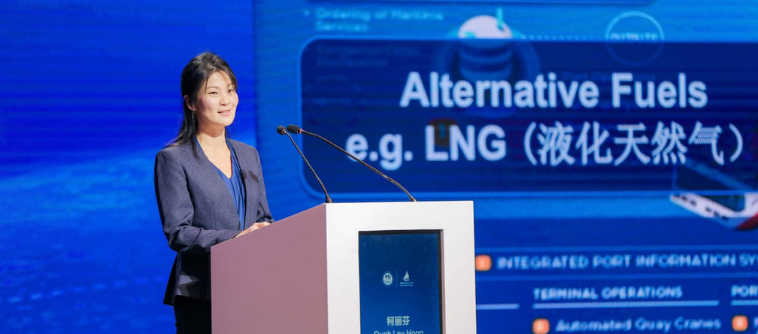
Quah Ley Hoon outlines how the pandemic has forced a focus on the difficult balancing act between public health risk and business continuity in the face of long-term uncertainty.
When Quah Ley Hoon was offered a scholarship by the Singaporean government to study an MBA, she grasped the opportunity with both hands. As a self-confessed Francophile who earned her MA in France, she has logged more than a decade of public service across various government ministries in Singapore. Never afraid to take on a new challenge, she also holds a distance learning degree in psychology and has amassed five years of media experience as Chief Editor of Channel NewsAsia. In January 2019, she became the first female Chief Executive of the Maritime and Port Authority of Singapore. It has proved to be an endlessly challenging position, helping her to expand her managerial horizons. But she has risen to the scale of the task aided by her deep managerial and leadership experience across public policy, trade, finance, the environment and the media. Perhaps just as important in helping her land and grow into the role, however, is her humble approach to professional development, acknowledging the scope for learning and growth in all circumstances “I think it’s important to adopt a servant leadership type of mindset; listening, being open and recognizing that you don’t have all the answers. I am constantly amazed by how much more I learn through this approach,” she says. This servant leadership mindset has doubtless proved crucial in an industry that encompasses a complex value chain and whose environmental targets require extensive public-private sector collaboration. Steering a rapidly-evolving sector through a pandemic that has placed a high degree of responsibility on shipping for the viability of the global supply chain has certainly not made things any easier. She acknowledges that, like many industries, the pandemic has forced the sector into striking a difficult balancing act between public health risk and business continuity. Keeping ports open and ships moving at a time of uncertainty, including evolving border policies between countries, has added another layer of complexity. Having spearheaded a whole host of initiatives aimed at keeping ports flowing, she believes that for a sector that often shies away from the limelight, it has been able to lean on its strong sense of purpose to keep disruption to a minimum. “I have been very heartened by the fact that the maritime industry remains quite resilient. But most important is the sense of mission in the industry. We are the backbone of the supply chain and the sense of professionalism to keep things going is strong,” Quah says.Let purpose power your future with IMD MBA 🚀
Join our full-time MBA program, ranked #1 in Europe by both Bloomberg Business Week and Forbes, to develop reflective and responsible leadership skills in an innovative, entrepreneurial and global business environment.



